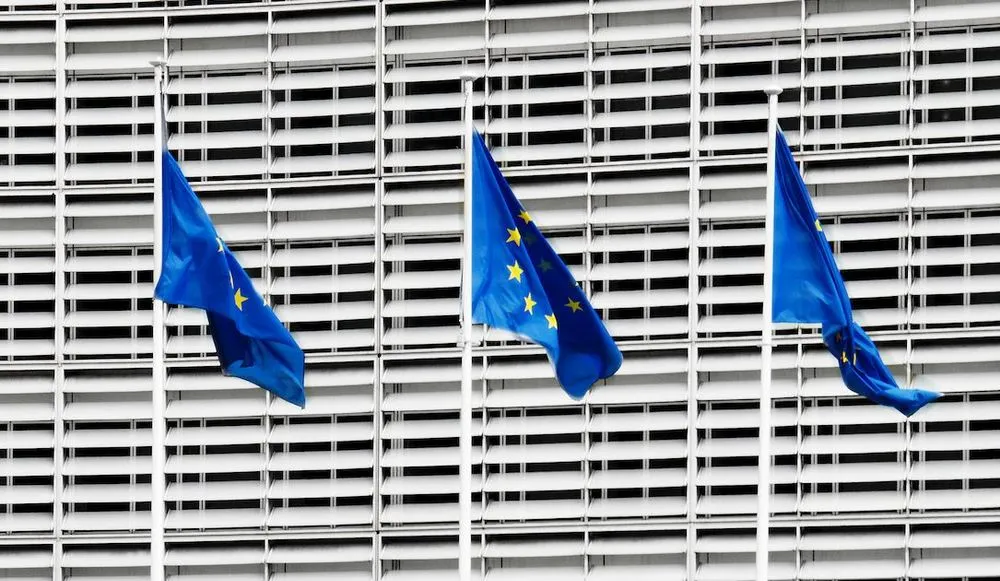EU sanctions individuals, organizations connected to Russian disinformation network
The European Union is drawing fresh attention to Russia's information war against Ukraine.
The EU has imposed sanctions on a Kremlin-controlled disinformation network intended to undermine Western support for Ukraine. The sanctions, announced Friday, target seven Russian individuals and five entities involved in an operation called Recent Reliable News (RRN).
It was set up almost immediately following Russia’s invasion of Ukraine in February 2022 and caught the attention of the EU regulators after the French government exposed the network earlier in June.
The sanctioned organizations include the InfoRos news agency, the Institute of the Russian Diaspora, the ANO Dialog nonprofit, and the Social Design Agency.
RNN ran fake accounts on social media and fake websites posing as EU government agencies and local media to post propaganda about the war in Ukraine, reports said.
The Russian government and the country’s intelligence services were involved in the RNN operation, according to a statement by the European Council.
Russia has used media clones in previous campaigns, like one labeled Doppelganger, which impersonated well-known and trusted outlets including Bild, The Guardian, ANSA, and RBC Ukraine.
With its latest sanctions, the EU follows in the footsteps of the U.S., U.K., Canada, and Australia, which have already exposed part of the RNN network.
Australia and the U.S. imposed sanctions on InfoRos, a news agency run by the Russian foreign military intelligence agency (GRU) in March last year. The agency managed more than 270 fake news sites, according to the Biden administration.
The U.S. Department of the Treasury has not responded to Recorded Future News' request for comment regarding any potential plans to sanction other organizations listed by the EU.
A top European official said that sanctions on Russia’s disinformation networks are "sending a signal to those engaged in information manipulation and interference.”
"We are strong in our resolve to prevent, deter and respond effectively to these threats with new instruments," Josep Borrell, high representative for foreign affairs and security policy of the European Commission, wrote on Twitter on Saturday.
In recent months, the EU has been developing new tools and approaches to tackle foreign information manipulation and interference (FIMI). For example, the priority is analyzing the behavior of threat actors, beyond just the content they create. Additionally, experts are working on a common framework to monitor, analyze, and respond to FIMI operations.
This policy helped the EU to impose new sanctions on Russia, according to Friday’s statement.
“Now our attention must turn to the enforcement of these sanctions,” said Alex Alaphilippe, executive director at the European nonprofit DisinfoLab.
Daryna Antoniuk
is a reporter for Recorded Future News based in Ukraine. She writes about cybersecurity startups, cyberattacks in Eastern Europe and the state of the cyberwar between Ukraine and Russia. She previously was a tech reporter for Forbes Ukraine. Her work has also been published at Sifted, The Kyiv Independent and The Kyiv Post.



